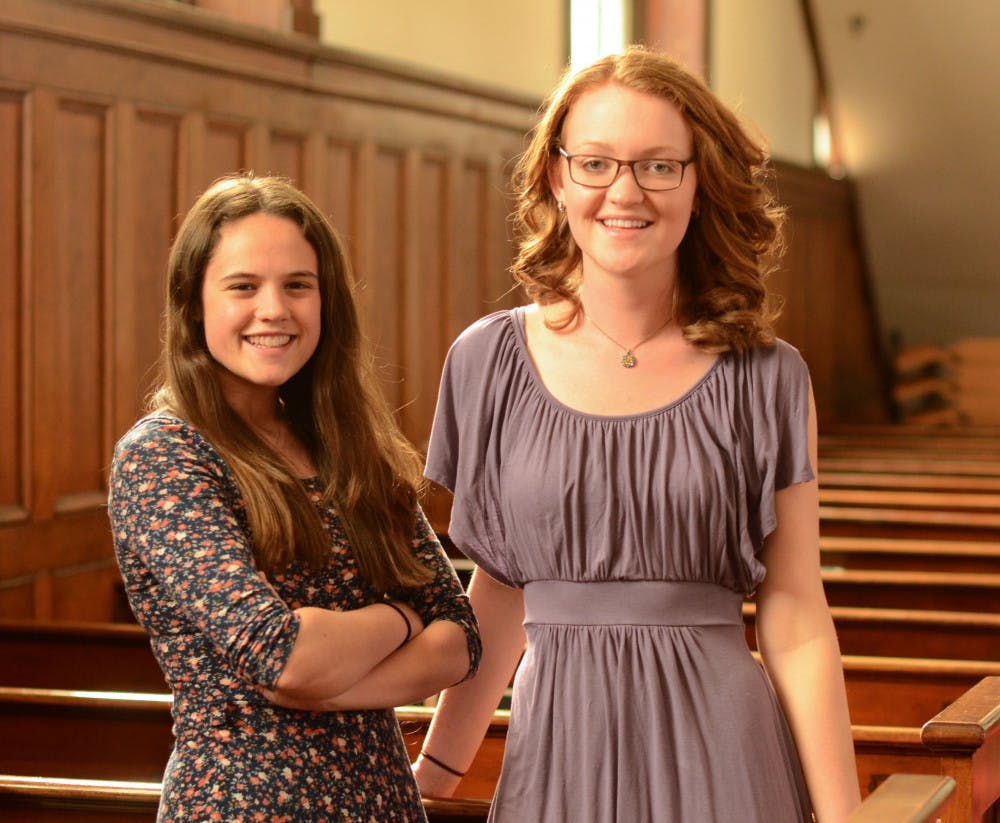This year, two Middlebury College students, Maddie Orcutt ’16 and Kate Hamilton ’15.5, were selected to receive the prestigious Truman Scholarship.
The Truman Scholarship is a $30,000 grant awarded to a select number of college juniors interested in government and public policy with the purpose of assisting them in attending graduate school and providing them with networking and internship opportunities. In order to be selected, an applicant must write a proposal advocating a change in a particular policy. Those who are awarded the scholarship pledge to work for at least 3 years for the government or for non-profit organizations. For the year of 2015, only 58 students were awarded the scholarship out of 688 candidates; the College was one of 8 institutions to have multiple scholars.
Orcutt, a junior at the college and native of Wyoming, is double majoring in Political Science and Gender, Sexuality, and
Feminist Studies.
Among the organizations that Orcutt is involved in on campus, she is particularly passionate about It Happens Here, an organization started at the College that addresses sexual violence on campus and the ways in which the administration handles incidents of assault.
For her particular policy proposal, Orcutt examined the possible ways in which the federal government can reform the current U Visa system.
“U Visas are afforded to immigrant victims of domestic crime and largely victims of domestic violence and sexual assault,” she said. “So my proposal looks at how we can reform those processes so that local jurisdictions aren’t given such arbitrary power and so that we can standardize these processes in a way that is reflective of their goals at the federal level.”
As for law school, she said that she is “looking at a school with a really strong family law and immigration law program since [her] interests sort of straddle the line between both in the sense that [she is] looking at interpersonal violence but also its intersection with immigration.”
When asked what she plans to do during the five to seven years following law school, she said: “The Truman is unlike a lot of other fellowships or scholarships in that it does ask you to be really specific. I think applying for the Truman scholarship, even if I wouldn’t have won the money, was a really valuable process for me in that it… really made me reflect on how cool it is that I have these interests that I have developed at Middlebury.”
As for her long-term goals, she said that so far, much of her work has been focused on sexual assault in university communities.
“The fact of the matter is that women ages 18 to 24 are at their highest risk of sexual violence if they are not attending university. And so I’d really like to see us build upon this current campus awareness to look at other communities and try to figure out what’s happening elsewhere, how we can prevent these sorts of violence, and also what sort of legal responses are helpful and supportive,”
she said.
Hamilton, a Political Science major and native of Washington D.C., became interested in public policy when she was 12 years old after reading several books on income inequality. This prompted her to join City Year Young Heroes, a service learning corps for middle-schoolers in D.C.
While working as a field organizer for President Obama’s reelection campaign in 2012, she realized “that the wealth and educational inequality that I had seen in City Year also translates to civic inequality.”
For the scholarship, she wrote her policy proposal on “zero tolerance discipline policies in U.S. public schools.” These policies, she explained, began after Columbine as a way of expelling students who brought weapons to school, but soon evolved to include discipline for discretionary reasons such as tardiness and insubordination.
“A lot of times they are applied in ways that are not fair and they disproportionately affect African American students, which ends up with African-Americans being expelled and suspended at rates that are really not proportionate with the rest of the country,” Hamilton said. “This kind of discrimination is the first step in a process of disenfranchisement that I’ve seen carried out through City Year and it’s… not a way for our schools to play an inclusive role in our democracy.”
Hamilton is involved in a variety of organizations on campus. She is an Opinions editor for the Campus, the head of MiddVote, a student member of the Academic Judicial Board, a peer-writing tutor, and a research assistant to Political Science Professor Matthew Dickinson.
After she graduates, she plans to work for a 2016 presidential campaign before going to law school. After law school, she intends to practice civil rights law and eventually work for the Voting Section of the Department
of Justice.




